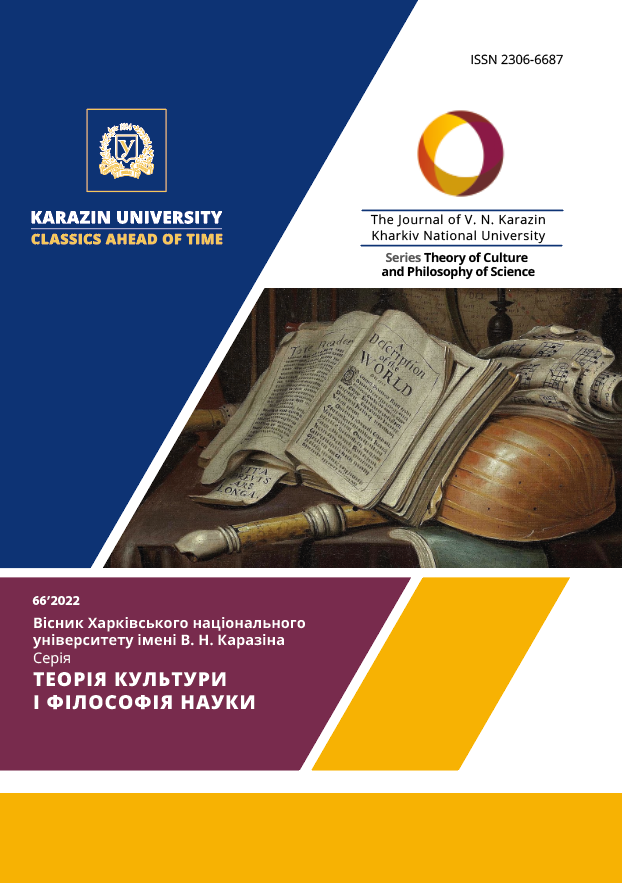LITURGY OF THE NAME AND LITURGY OF THE BODY. NOMINALIST AND CORPORATIST DIMENSIONS OF ORTHODOX LITURGY AS THEY STAND IN RELATION TO REPRESENTATIVE DEMOCRACY
Abstract
This study aims to situate the concept of political representation within the context of liturgical theology. Representation is the act of making another present. “Faithful” representation requires being touched and changed by the intelligent activity of the represented. This is afforded by the communication. The “name” is the word which draws persons into the further exchange of words. It is the lasting presence of another’s communicative action in my life. The sustenance of communication is underwritten by calling upon each other’s “name” and thereby inviting each other into further conversation. By “hallowing” the name, I let another person stay with me not just as a nominal presence of the “name” but as an impact upon me of everything that “comes with the name” – burdens and debts, glory and infamy, sin and punishment. To “hallow the name” is to proceed to the corporal sharing in that which the name refers to. In this case, it leads to “mutual indwelling” and “mutual witness” – the relationship whose parties can say to one another things like, “I am you and you are me”, “You are my code of conduct”. In this article, I hypothesize that “hallowing the name” and “breaking of bread” comprise the dialectic of the communion, comprised of the nominalist liturgy of the “word” and the corporatist liturgy of the “bread”. The “liturgy of the word” is the exchange of names – the faithful receive the teaching, the word of God, and hallow the Name of God, the exchange that ends in the baptism in the Name of God (receiving of the true new name of the faithful) and the “liturgy of the bread” is the exchange of “what goes with the name” – the faithful give up the sin which goes with the name of Adam, and receive immortality which is associated with the Name of Jehovah, the exchange whose acme is the Eucharist, our intake of the Body of God and God’s intake of us into God’s Body. I contend that this tension between the liturgy of the name and of the body can illuminate the tension between the nominalist and corporatist dimensions of representation in contemporary representative democracies.
Downloads
References
Philosophy and Theology, 79:3, 2018. pp. 251-260, DOI: 10.1080/21692327.2017.1401952 (In English).
Bergem, Ragnar M. “When We Fail to Understand Ourselves: Reflections on Theology in the Crisis of Representation”. DOI: 10.52629/stk.v98i2.24618. November 2022. Svensk Teologisk Kvartalskrift 98(2): 2022. pp. 89-106. (In English).
Harris, Michael D. "Christological Name Theology in three Second Century communities" Dissertations (2009 -). 2013. Paper 270. http://epublications.marquette.edu/dissertations_mu/270. (In English).
Hjälm, Michael. Liberation of the Ecclesia: The Unfinished Project of Liturgical Theology. Södertälje: Anastasis Media AB. 2011. 336 p. (In English).
Jensen, Robin. Living Water: Images, Symbols, and Settings of Early Christian Baptism, BRILL. 2010. 333 p. (In English).
Justin Martyr. Dialogue with Trypho the Jew, lxxxix; ANF, 1:244; Dialogue avec Tryphon, ed. and trans. by Georges Archambault, 2 vols (Paris: Librairie Alphonse Picard). 1909. 340 p. (In English).
M. Andrieu and P. Collomp. ‘Fragments sur papyrus de l’anaphore de saint Marc’, Revue des sciences religieuses 8 , 1928. pp. 489–515 (In English).
McKinion, Steve, ed. Life and Practice in the Early Church: A Documentary Reader. N.p.: NYU Press. 2001. 189 p. (In English).
R. C. D. Jasper and G. J. Cunming (eds). Prayers of the Eucharist: Early and Reformed, New York: Pueblo Publishing, and subsequent reprints, Collegeville: Liturgical Press. 1980. 314 p. (In English).
Schmemann, A. Problems of Orthodoxy in America, Part I: The Canonical Problem. Orthodox Christian Information Center. http://orthodoxinfo.com/ecumenism/schmem_canon.aspx. St Vladimir’s Theological Quarterly, Vol. 8, No. 2, 1964. pp. 67-86. (In English).
Schmemann, A. Problems of Orthodoxy in America, Part II: The Liturgical Problem. Orthodox Christian Information Center. http://orthodoxinfo.com/ecumenism/schmem_canon.aspx. St Vladimir's Theological Quarterly 8 (1964), 1964. pp. 164-185. (In English).
Schmemann, A. Problems of Orthodoxy in America, Part III: The Spiritual Problem. Orthodox Christian Information Center. http://orthodoxinfo.com/ecumenism/schmem_canon.aspx. St Vladimir's Theological Quarterly (1965), pp. 1965. 171-193. (In English).
Spinks, Bryan D. Do this in Remembrance of Me: The Eucharist from the Early Church to the Present Day. N.p.: SCM Press. 2013. 536 p. (In English).
Williams, Rowan. "Dialectic and Analogy: A Theological Legacy." The Impact of Idealism: The Legacy of Post-Kantian German Thought. By Nicholas Boyle and Liz Disley. Ed. Nicholas Adams. Cambridge: Cambridge UP, 2013. 274-92. Print. (In English).
Williams, Rowan. 'Creation, Creativity, and Creatureliness: The Wisdom of Finite Existence', in Brian Treanor, Bruce Benson, and Norman Wirzba (eds), Being-in Creation: Human Responsibility in an Endangered World, Groundworks (FUP) (New York, NY, 2015; online edn, Fordham Scholarship Online, 21 Jan. 2016), https://doi.org/10.5422/fordham/9780823264995.003.0002, accessed 9 Aug. Pp. 23-36. (In English).
Williams, Rowan. 'The Sadness of the King': Gillian Rose, Hegel, and the Pathos of. Reason. Telos 173 2015.: pp. 21–2, doi:10.3817/1215173021. (In English).
Williams, Rowan. The Tragic Imagination. Oxford University Press. 2016. 178 p. (In English).
Williams, Rowan. Christ the Heart of Creation. Bloomsbury Press. London. 2018. 304 p. (In English).
Williams, Rowan. Holy Folly and the Problem of Representing Holiness: Some Literary Perspectives. Journal of Orthodox Christian Studies 1(1), 2018. pp. 3-15. doi:10.1353/joc.2018.0001. (In English).
Williams, Garry J. Penal substitutionary atonement in the Church Fathers. Evangelical Quarterly 83.3, 2011. pp. 195–216. (23 p.) (In English)




